Brendan McDaid is 35 years into a career based on decoding the mysteries of the golf swing for aspiring Tour players and handicap hackers. McDaid, acknowledged as one of Ireland’s foremost golf coaches, has been tutoring players of all levels since he first joined what is now the PGA in Ireland, in 1985.
Born in Letterkenny, County Donegal on April 11, 1961, McDaid moved with his family to Skibbereen, County Cork five years later. It was there, in the scenic surroundings of the West Cork town and the Skibbereen Golf Club, that Brendan’s passion for golf was first nurtured. Decades later, he remains fascinated with the game and how best to remedy the faults and foibles of those who turn to him for tuition.
Therein lies the secret of his longevity and effectiveness in a crowded market, a market which includes hundreds of teaching professionals in Ireland and multi-thousands of coaching videos on the internet.
Back in 1985 when he entered the PGA system, there were 125 PGA pros in all categories; now it is up to 575. While he has the utmost respect for all professionals who try to make a career and a good living from tutoring – he was Irish PGA Captain in 1997 – McDaid reckons the market place is too crowded.
“That’s far too many,” he said. “The business is very competitive. I think the PGA, like, the model they use for training in England – I’m only giving you my opinion, they might not agree with me – but the more students they have going through, they’re able to charge them plenty, so I think it’s a numbers game for them.
“Now, maybe there’s more golf courses opening, but definitely there’s too many student professionals going through.
“But look, if you’ve got 500 professionals over here, there isn’t the business for them.”
His own business is thriving with the reputation earned over three decades continuing to attract golfers who need their game sorted out. McDaid’s love of the sport was nurtured almost as soon as he could walk. His father, Dr Kevin McDaid was a keen golfer. His mother, Eileen O’Grady, played interprovincial golf for Connacht and Munster, and was capped for Ireland in 1959.
Their eldest son, indeed all their children – Brendan, Kevin junior, Paul and Eileen Rose (now Power) – were fine players, especially Eileen Rose who became one of the best women golfers ever to play the game in Ireland.
Her three Irish Ladies Close titles and selection for the Curtis Cup plus a host of international appearances are a fine legacy from Eileen Rose. She and her husband Eddie Power, a three-time Irish men’s Close winner, would still be a formidable mixed foursomes partnership, and their son Mark, now in college at Wake Forest, Arnold Palmer’s alma mater, is a rising star in the GUI ranks.
But back to Brendan and his early days. An innate talent allied to a diligent work ethic brought notable under-age success. Indeed, young Brendan made national headlines in August 1972, when, aged 11, he shot 44 points in competition off 24 handicap to win a weekly prize in the highly popular ‘Sunday Independent Philips Electrical (Irish) golf competition’ which ran for many years in the newspaper.
This was quite a big deal for a kid from Skibbereen. The Sunday Indo sold over 320,000 copies a week at the time, so the McDaid name came to prominence early in his career.
The Sunday Indo report noted Brendan’s golfing heritage, and revealed he had used his mother’s clubs for his 83 gross on the then par-70, 9-hole Skibbereen layout, discarding the Peter Alliss clubs that were specially made for him a few years earlier because he felt he wasn’t hitting the ball far enough.
“My dad was a very keen golfer. My mum played for Ireland before she got married. She was a very impressive ball striker for a lady.
“Me being the oldest, I used to go golfing with my dad. We’d go out most days.
“I’d usually go to the golf course with my dad before school. The golf club was halfway between the house and the school, so I often left the bicycle at the golf club the night before.
“My dad would get up at half-six in the morning. I’d hear him making breakfast and I’d get up. He never had to call me. I’d go out with him in the morning to the club and when we were finished hitting balls, I’d get the bike and cycle on to school.
“He might pick up the golf balls or stay on for another while. We mostly hit balls on the practice ground because in the wintertime you wouldn’t have much light,” he said.
The father-son partnership combined to great effect when Brendan made national headlines again, this time in “senior hurling” a.k.a, the venerable South of Ireland golf championship at Lahinch in 1976.
Dr Kevin caddied for his offspring who was a 15-year-old waiting for the results of his Intermediate (Junior) Certificate results.
All of 5ft 5 ins in height, weighing around eight and a half stone, the little guy kicked some serious sand in the faces of older and more experienced opponents.
He carved a swathe through the early rounds with victories by 5&3, 5&4 – the latter a win over Munster interpro Billy Rice, father of Limerick-born professional Tim Rice – then came further progress in his next two matches by 3&1 and 7&6.
Jackie Harrington of Adare Manor, a 40-year old seasoned Irish international and Munster interprovincial player was next up. Young Brendan, playing with his father’s clubs this time, a new set of Titleists, was the youngest player to reach the last 16 in the then 81 year history of the South of Ireland. The kid gave Harrington a great battle only to succumb to a birdie on the 18th and defeat by one hole.
Returning to the under-age ranks, McDaid made a national breakthrough in 1977 when, aged only 16, he won the Irish Youths (under-21) championship, beating Tullamore’s Sean Flanagan at the first tie hole after the two players were tied on 290 for the 72 holes.
Among his peers at that time were future Ryder Cup players Ronan Rafferty and Philip Walton.
Rafferty exuded star quality, but he had to bow the knee to McDaid in the 1978 Munster Boys championship at Killarney when the pride of Skibbereen defeated the Ulster prodigy at the 20th.
McDaid had another success over Rafferty in the 1980 Munster Youths championship at Muskerry, shooting 296 to the runner-up’s 303.
A year later at Ballybunion, McDaid retained the Munster Youths crown, winning by six shots (292) ahead of second-placed Paul Murphy of Killarney.
Interprovincial caps for Munster men’s team soon followed, and before he turned pro, McDaid had played for Ireland at Boys, Youths, and Senior level.
Once he finished secondary school at St Fachtna’s Skibbereen, McDaid took a brief sojourn in the world of auctioneering before turning professional.
“I went to work for De Courcy’s in Limerick, and I really enjoyed my time there but it was never for me. I just wanted to be a professional.
“My first love was to be a player and if I couldn’t do that, then I wanted to be a teacher so that took me on a journey. I started my apprenticeship with Peter O’Hagan in Bandon,” he said.
Between then and 1989 McDaid spent the bulk of his time coaching but made three attempts at Tour School.
The first time, in 1983, he had a No Return. Twice more McDaid had a go, missing the cut once, and then in 1988, gaining conditional playing rights by finishing three shots adrift of a precious full Tour card for 1989.
At that stage he was in Paris having gone to France with a contract to work at a golf complex which was under construction. Repeated delays in the development eventually caused McDaid to go back to Ireland, and this time he had cleared his mind about the future.
“So back then I was still in Paris, now teaching in a golf club – not the club I went over to work at, because it still wasn’t ready. They got me a job where I was practicing and teaching.
“Back then there was no Challenge Tour like they have now. If there was a Challenge Tour and they were getting sports grants like they do now, I’d probably have made it a lot further down the road than I did.
“But with the card I had, they’d ring you on a Tuesday saying there was a tournament on a Thursday, “Do you want to play?”
“I did it once. It was in the South of France. Philip Walton was doing well in the tournament (The AGF Open in Montpelier in March 1989).
“Mark James won it. I was on the leaderboard after six holes, but that was as good as it got. After that tournament I said my playing days were over. I was going to teach because I was very busy in Paris at that time.
“And I always did say to myself, I would keep trying till I was 30. If I didn’t succeed by 30, I could look back and say ‘I did try. I didn’t succeed. Time to move on.’
“So that was close enough to my 30th birthday and I was happy enough with my decision,” he said.
The Tour’s loss was a gain for legions of handicap golfers and also for some big names.
Peter Lawrie was on the cusp of giving up life as a Tour player when he turned to McDaid for advice in Millennium Year.
The outcome was winning the European Tour’s Rookie of the Year accolade in 2003 – remarkably, the only Irish professional to win the Henry Cotton Award – and eventually becoming the Spanish Open Champion in 2008.
Gary Murphy came to the fore on Tour with McDaid coaching him. Younger players such as Walker Cup player Jack Hume were on the books when Hume made an historic clean sweep of the four GUI Boys Provincial titles in 2010.
“I helped Gary Murphy get his Tour card in 2000 and it was Gary who got Peter (Lawrie) to come to me. I would have helped Colm Moriarty in his days as a top amateur and in his early days as a pro.
“And I did a lot of work for Michael McGeady down through the years. I didn’t see him last year but he’d normally come to me a couple of times a year. He’d say: “I know what you’re going to say, Brendan, but I need to hear it.
“I also used to coach my sister when she was playing and winning Championships and playing in the Curtis Cup.
“But, look, no matter who it is, I love teaching. Teaching isn’t a chore. I actually get a buzz out of it. I love helping people to play better.
“My bread and butter is the high handicapper/beginner. The good golfer, they are the cream. We have a few young lads that hopefully in time will take over Jack Hume’s mantle. I have a few that might do that, but they’re young yet,” he said.
McDaid is as enthusiastic a student as anyone on the evolving theories about the golf swing, but when it comes to the customer standing in front of him, the key is how best to impart the bit of knowledge that will make a difference.
Now based at the impressive Spawell Golf Academy in Dublin which Peter Lawrie took over last year, McDaid sees golfers of high, medium and low handicaps, men and women.
Whatever aspect they struggle with, his first job is to evaluate the communication process between himself and the client.
“For me, teaching, half of it is how the brain works. You’ve got to be able to impart information to that person in a way that they can relate to you.
“Maybe I’m bragging, but I feel I’m quite good at getting on the same wavelength with the golfer in front of me.
“Maybe I picked that up from my dad who was a psychiatrist, I don’t know, but I understand that if you’ve somebody in front of you, you’ve got be able to explain it so that they understand it,” he said.
Life, of course, goes on around anybody’s profession, and McDaid is no exception.
A father of three – Anthony is 25 and twins David and Troy are 21 – he has been legally separated for many years.
Last year his partner, Maureen, died of cancer, and his father passed away in December 2018, a few months after Maureen’s illness was diagnosed. His mother, Eileen, died in 2013.
“That’s all part of the story. You just have to carry on,” said McDaid.
That resilience has carried him through many phases and coaching bases since 1985, including Rathsallagh, Harbour Point, Lee Valley, The Heath, and Frankfield Driving Range in Cork, but when it came to the crunch about a playing career in the big time, Brendan was able to say to himself “this Tour ambition is not going to be realised.”
How does he handle starry-eyed young players who set their heart on emulating Rory McIlroy, Shane Lowry, Pádraig Harrington and the other big name Tour stars? Has he told anyone they were simply not going to make the grade?
“I mightn’t put it quite like that because none of us know what’s in the future. You might have an idea, but you cannot predict the future.
“For example, I’ve a young lad that I’m teaching, and he thinks he’s great. I think he’s good, but I don’t think he works hard enough to be where he thinks he wants to be.
“I try to encourage him. I say ‘look, if you don’t want to put in the hours, don’t be expecting to make it, because you’ve got to be the best in this country at that level, because if you’re not the best in this country, you won’t make it out in the big bad world’.
“So that’s how you say it – measure yourself on the guys you’re playing against, not that ‘I’m in the top six.’
“I have another guy I used to teach and I told him he shouldn’t turn pro.
“He didn’t listen to me. I said you’ve got to beat the best amateurs before you can even think of the pro game.
“He didn’t want to hear that and he’s struggling now. You must be able to beat the people you’re taking on before you can reach the next level.
“You look at Peter Lawrie who was successful, you look at Gary Murphy who got his Tour card, Colm Moriarty, they were all able to beat people they played against at various levels.
“If you can’t beat them, you’re not going to do it.
“Apart from anything else, what’s important is the work ethic.
“If you’re not prepared to work your socks off, you’ve no chance, because there’s only a small percentage who make it. As Ben Hogan once said, “if you can’t outplay them, outwork them.”
A player’s perspective
Former European Tour professional and Spanish Open champion Peter Lawrie worked with McDaid for 10 years and had this to say:
“Everybody knows that I’m no fool and I say it as it is, and I’ve always done that. I wouldn’t have been with Brendan McDaid for as long as I was if Brendan McDaid wasn’t able to help me. Now that might sound like a selfish thing to say but he was very, very good for my company – for P Lawrie. You look at Dermot Desmond and JP McManus, they don’t surround themselves with fools and Brendan McDaid was a very, very good coach and that’s why he coached me.”

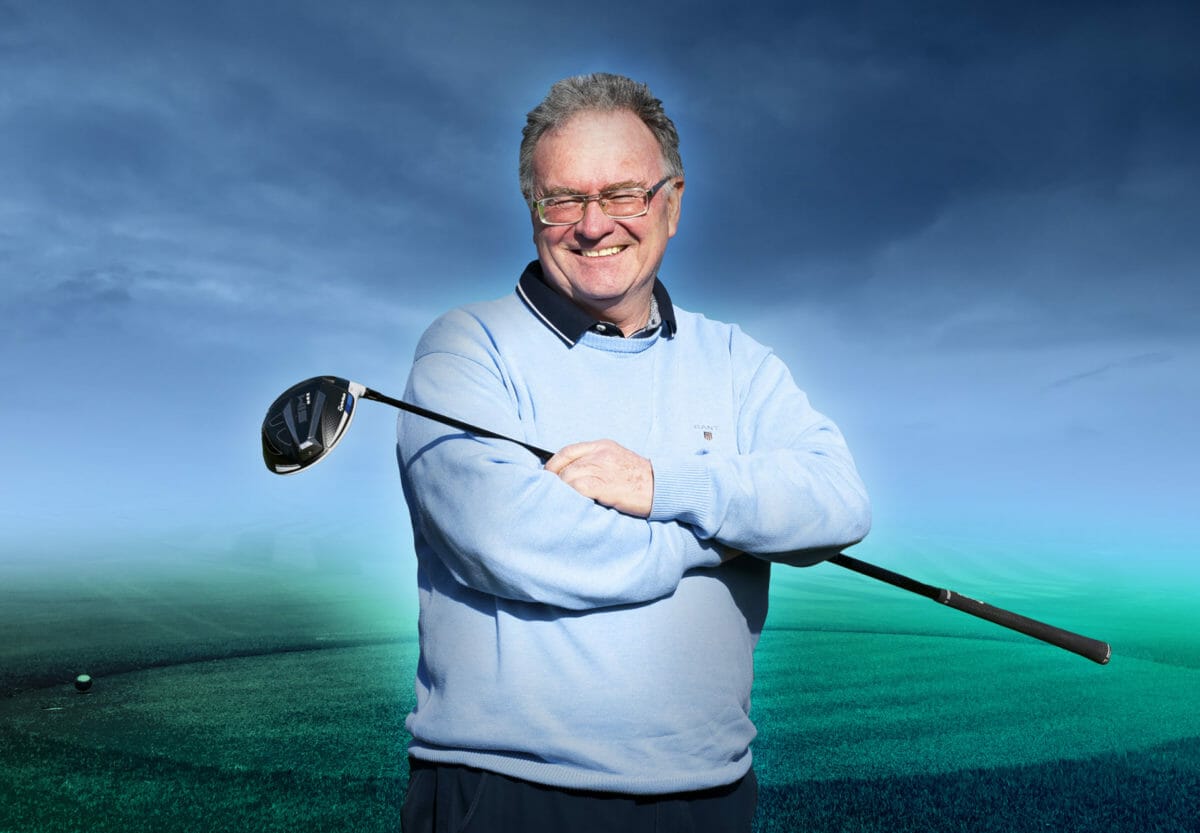









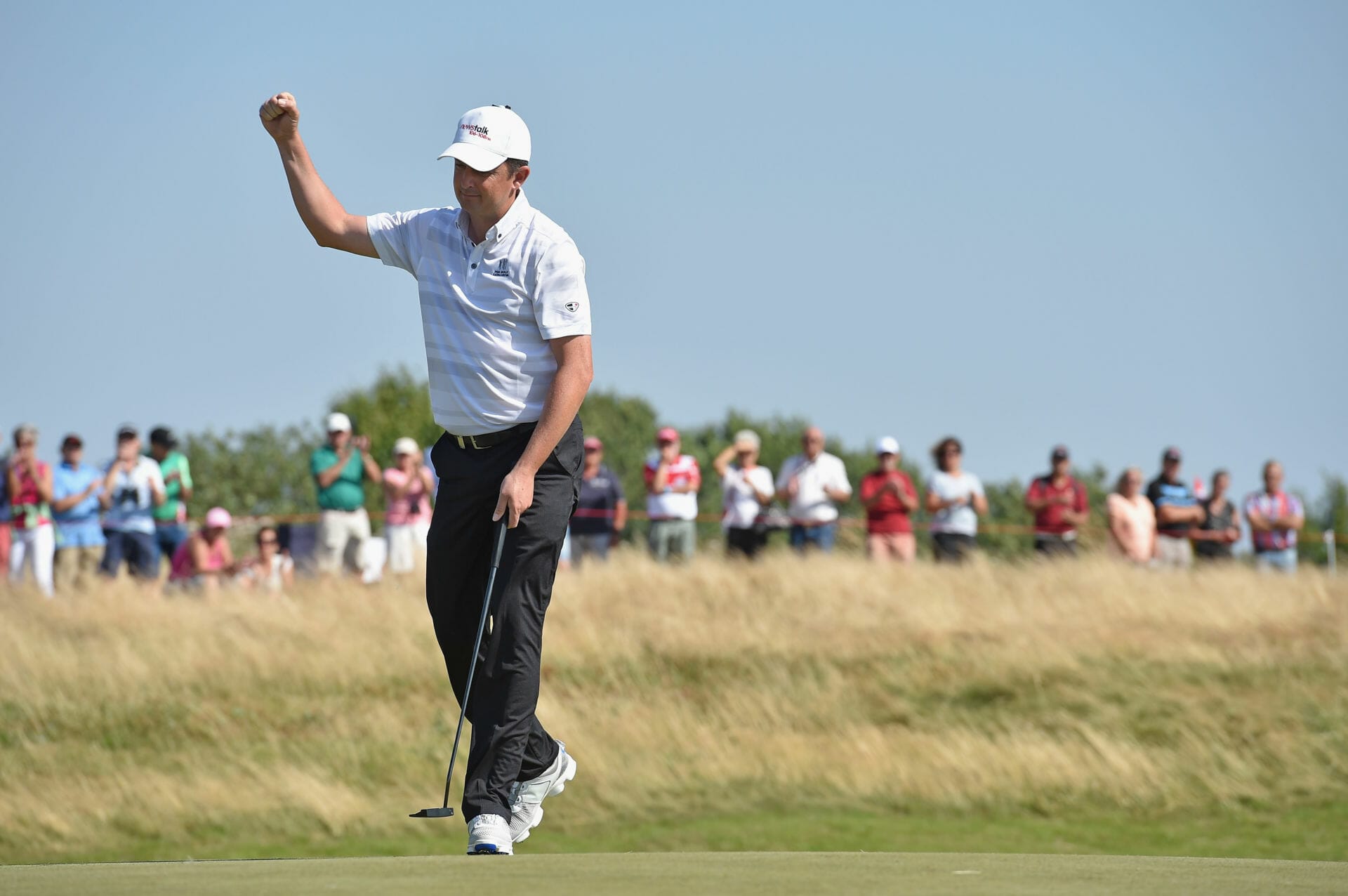
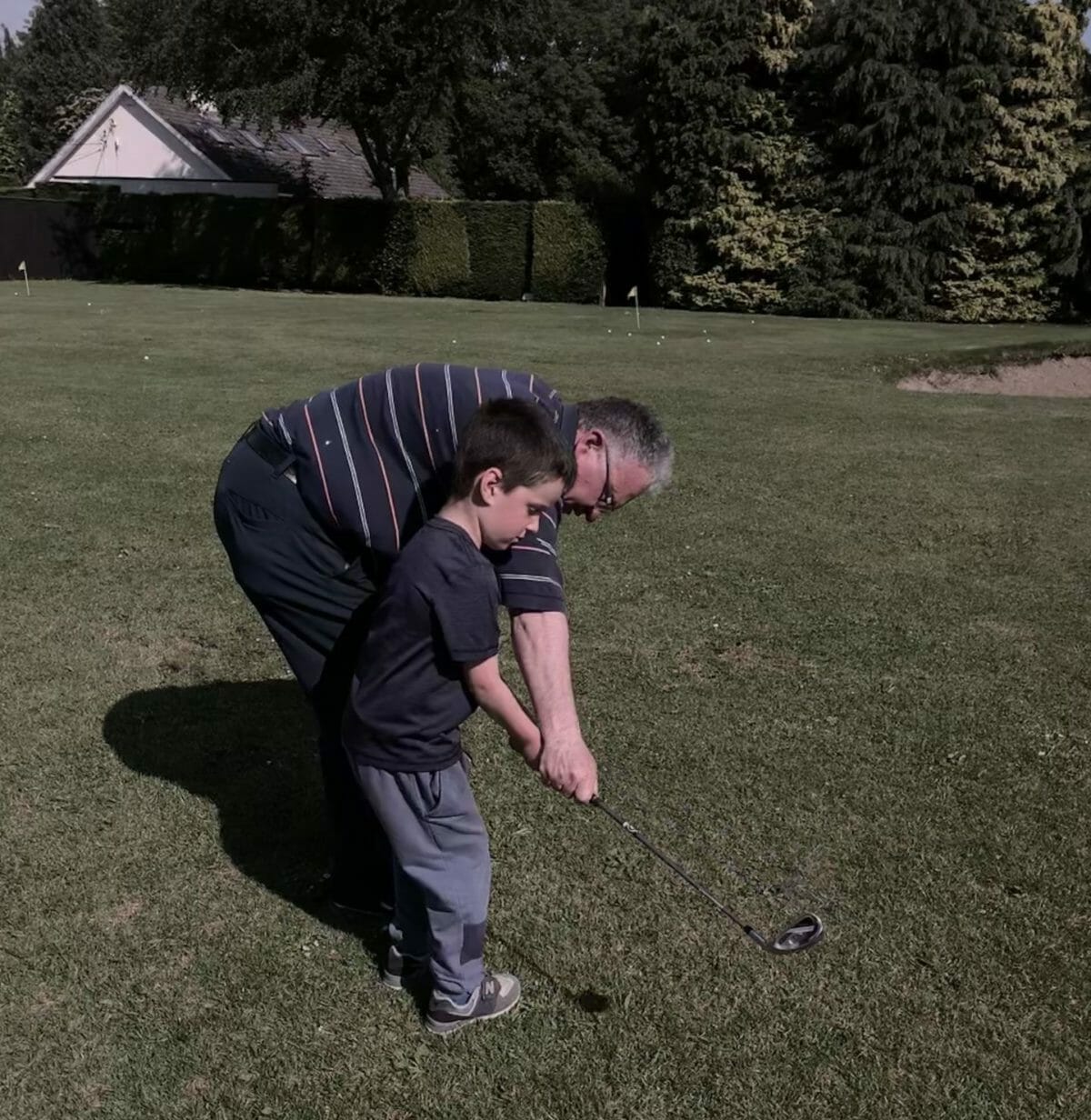


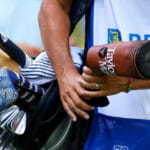
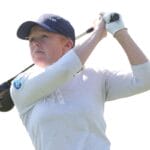




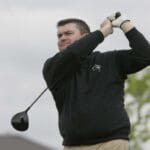




Leave a comment